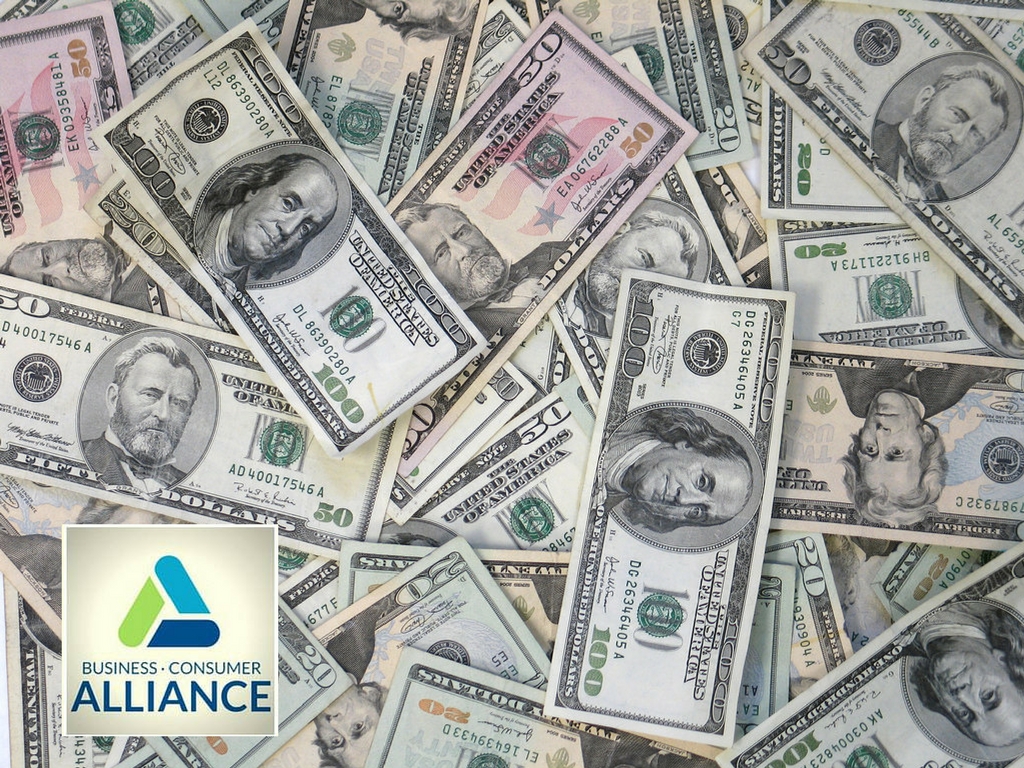
Business Consumer Alliance wants to warn consumers about an unclaimed money scam that has bilked some consumers out of thousands of dollars. BCA was recently contacted by a consumer that lost almost $4,000 to the scam. The crooks pose as government agencies and persuade individuals that they have unclaimed funds coming to them, all they have to do is pay a fee for it to be released. Although they may sound convincing, it is a scam.
Scammers posing as the National Association Unclaimed Property Administration (NAUPA), an association that increases awareness of unclaimed property, have been sending fake letters using NAUPA’s letterhead to make it appear official and getting individuals to pay to receive funds. They use information found on NAUPA’s website in the letter and claim the recipient of the letter has won a sweepstakes, or lottery in the amount of $750,000. They explain that taxes need to be paid on the amount and for an up-front fee of $2,250 the winnings will be released. The fee is to be paid by check, cash, or money order. They stress that paying by cash is the fastest way to receive the funds.
The complainant that contacted us took out a title loan on their car to cover the fee. The money was mailed via FedEx to a Ronald Fuller, whom they claimed was an attorney. Shortly thereafter, someone named Samuel Reese, who was the “delivery person”, required a fee of $1,600 to deliver the funds. Once again after this amount was sent, the crooks asked for more money, $4,500 in fact to obtain a tax seal from airport security to get the money through the airport. At this point the complainants asked for his money back, which of course has not been refunded. His calls are not returned and he is out of thousands of dollars.
This type of scam has been circulating for years, with some variation, but ultimately the same scheme. The common factor in these cons is that they require up-front fees, usually requested to be sent via cash, check, money order, or wire transfer. This is because the crooks want to get the money fast and leave the victim with no way to get the money back or to track down the criminals. Be aware: if you have to pay to get money that is yours, it is more than likely a scam.
Keep in mind that government agencies will not call you about unclaimed money or assets. If you are contacted by someone claiming you have unclaimed funds or property, you can check this information out on your own, for free. Each state has unclaimed property programs. You should start your search by checking in states where you have lived for unclaimed money or property. If you believe you may have unpaid back wages, check the U.S. Department of Labor’s Wage and Hour Division’s website. For unclaimed life insurance funds, check with the U.S. Department of Veterans Affairs. For tax refunds, contact the IRS. For more information and resources to locate unclaimed funds and assets visit USA.gov.
BCA warns consumers about common scams and provides tips to avoid falling victim to many different schemes. Follow us on Facebook and Twitter for updates and important information. We also want to hear from you. If you suspect or have been victimized by a scam, let us know by filing a complaint.
About Business Consumer Alliance
Business Consumer Alliance (BCA) is a non-profit company that started in 1928. The broad purpose of BCA is to promote business self-regulation. BCA's mission is achieved by assisting consumers in resolving complaints with businesses and using that complaint information, along with other relevant information such as customer reviews, to forecast business reliability. With community support, BCA can identify trustworthy and ethical businesses and warn the public to avoid unscrupulous businesses whose purpose is to defraud the marketplace. BCA also helps businesses promote themselves by providing services and tools to protect their business and reach out to their customers. BCA obtains its funding from member businesses who support the mission and purpose of the organization and who agree to abide by high standards of ethical business practices.